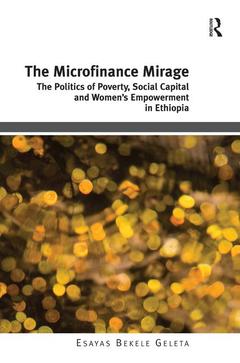Description
The Microfinance Mirage
The Politics of Poverty, Social Capital and Women's Empowerment in Ethiopia
Author: Geleta Esayas Bekele
Language: English
Subjects for The Microfinance Mirage:
Keywords
amhara; region; institutions; industry; service; women's; empowerment; financial; systems; approach; Microfinance Institutions; Young Man; Sustainable Microfinance Institutions; Local Alcoholic Drink; ACSI; BRAC; Microfinance Industry; Financial Systems Approach; Microfinance Services; Enforces Loans Repayment; Savings Committee; Microfinance Projects; Microfinance Literature; Critical Research Orientation; Post Washington Consensus; Kebele Office; Accessing Loans; Microfinance Group; Dry Pea; Grameen Bank; Credit Access; Women Clients; Providing Microfinance Services; Social Capital
Approximative price 164.74 €
In Print (Delivery period: 14 days).
Add to cart· 15.6x23.4 cm · Hardback
Description
/li>Contents
/li>Biography
/li>
These books may interest you

MicrofinancePerils and Prospects 61.25 €



